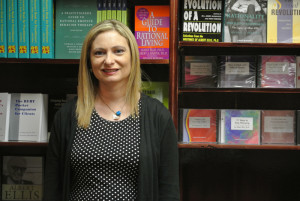by Deniz Sidali, M.A.
The movie Groundhog Day starring Bill Murray as a misanthropic meteorologist grudgingly stuck in Punxsutawney, Pennsylvania where he relives February 2nd several times because he is unaware that he is in a time loop. By the end of the movie, Murray learns several life lessons about himself, others, and his life, and changes his perspective and interactions with others. A lot of people in America often reference this movie when they state, “Boy I wish I could go back in time and redo a lot of things differently in my life like the movie Groundhog Day”. Although we cannot go back into our past and correct some of the mistakes or decisions we may now regret, the good news is that we can acknowledge and make a conscious effort to change how we perceive and address or behave at this moment and in the future. Oftentimes, a lot of people repeat the same mistakes or patterns of behaviors or decision making and wonder, “Why do I always date losers?”, “Why do I always get passed up for a promotion?”, “Why can’t I be happy?”, “Why do bad things always happen to me?” While many people externalize the locus of control to outside factors such as life, bad luck, or bad people, it is easier to displace blame onto others but maybe not helpful in the long run in deriving different results.
Now, I am not suggesting that we start accepting fault for everything that goes wrong in our lives. I am, however, suggesting that we deeply and honestly examine what factors are within our control to change and what factors may not be within our means to address. A lot of us are stuck in a sort of groundhog day when we repeat the same mistakes we either vowed never to repeat or may not be fully aware that we are repeating these same mistakes. This can simply be a matter of making a commitment to not repeat these same errors even if we feel frustration intolerance when we act differently or outside of our comfort zones, and accepting it without liking it. Once we alter our actions or behaviors, there can be a shift in our thinking or how we perceive ourselves, others, or life by unconditionally accepting them without liking them. We can also practice silently or aloud something like, “I would really like to meet the man of my dreams, but there is no reason that I must. I may have to go through a lot of frogs to find him”, “I am happy for my co-worker who got the promotion, and I can try harder to get a promotion myself”, “I can choose to be happy or I can choose to be miserable”, and “I would prefer if things went smoothly, but there are no guarantees in life that it will go smoothly just because I want it to”. And don’t just say these rational statements once or twice and stop. Repeat these rational statements over and over again until you start to feel healthier emotions. If you are going to be stuck in a groundhog day, it’s worth a shot.

